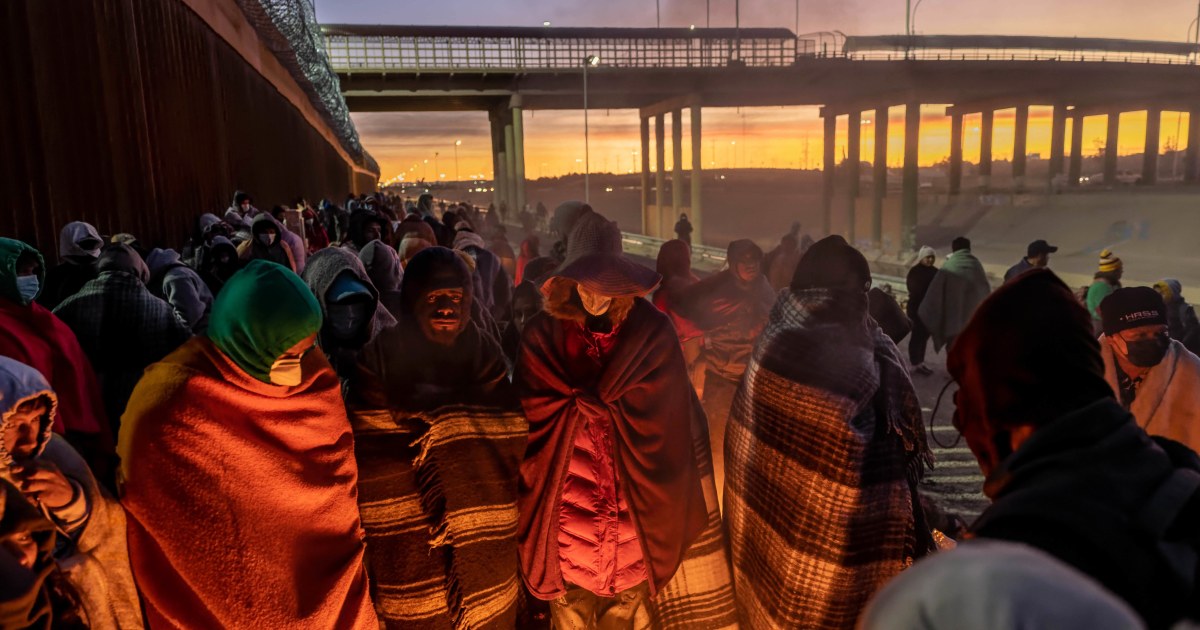#Supreme Court revives Biden immigration enforcement plan

WASHINGTON — The Supreme Court on Friday breathed new life into a Biden administration policy that will set immigration enforcement priorities by focusing on public safety threats.
The justices, in a 8-1 vote, overturned a Texas-based federal judge’s ruling in June of last year that blocked the policy nationwide. It had previously been in effect for less than a year.
Homeland Security Secretary Alejandro Mayorkas welcomed the decision, saying the policy allows immigration officers “to focus limited resources and enforcement actions on those who pose a threat to our national security, public safety and border security.”
Conservative Justice Brett Kavanaugh wrote for the majority that the challengers did not have legal standing to sue over the plan, which focused on the longstanding discretion that federal officials have in enforcing laws.

Kavanaugh wrote that the lawsuit brought by Texas and Louisiana was “extraordinarily unusual,” seeking to “order the executive branch to alter its arrest policies so as to make more arrests.”
But federal courts do not typically hear such cases, he added.
Kavanaugh said “other forums remain open” for the states to press their concerns, pointing to actions that can be taken by Congress.
“We do not opine on whether any such actions are appropriate in this instance,” he added.
Conservative Justice Samuel Alito was the sole dissenter, saying that the court had concluded “the only limit on the power of a president to disobey a law like the important provision at issue is Congress’ power to employ the weapons of inter-branch warfare.”
The ruling was welcomed by immigrant rights advocates.
“The court’s decision ends a period of confusing limbo in which many people — some of whom have lived here for years, have families here, and who are integral to their communities — have suffered from uncertainty about what the Department of Homeland Security could or would do in their cases,” said Sirine Shebaya, executive director of the National Immigration Project.
Kate Melloy Goettel, legal director at the American Immigration Council, said the justices made it clear that “courts should not be in the business of directing law enforcement’s decision-making and should give pause to states contemplating using the courts to drive a political strategy.”
Announced in September 2021, President Joe Biden’s plan was a shift away from the hard-line enforcement approach Donald Trump took as president. The Biden administration argued that with an estimated 11 million immigrants in the U.S. illegally, the government has to prioritize certain cases because it does not have the resources to detain and deport all of them.
Texas and Louisiana immediately challenged the plan in court, arguing that federal immigration law requires that certain illegal immigrants — including those convicted of aggravated felonies, human trafficking and some gun crimes — must be detained after they are released from criminal custody. Biden’s policy, which required an individual assessment of whether an immigrant is a threat to public safety or national security while the government initiates the deportation process, would defy that requirement, the states say.
Biden administration lawyers argued that the president has broad discretion to set enforcement priorities.
In the ruling blocking the policy, U.S. District Judge Drew Tipton, a Trump appointee, said Texas had standing because it could show that immigrants who should have been detained were in Texas and in some cases had committed crimes.
Tipton found both that the policy was unlawful and that the government failed to follow the correct procedure in implementing it.
In a statement Friday, First Assistant Attorney General Brent Webster in Texas said he was “extremely disappointed” in the Supreme Court’s decision.
“The court ruled that Texas did not have standing to challenge the federal government’s harmful ‘prioritization guidelines’ that protected certain classes of criminal aliens from arrest, and therefore the court failed to consider the merits of the case,” Webster said in a statement.
“The state of Texas and our citizens are disproportionately affected by the Biden Administration’s unlawful immigration policies, and Texas has played a key role in forcing accountability through the court system,” he added.
Republicans have frequently accused Biden of a lax approach to enforcement and border security, which they argue have led to a rise in crime and an increase in the number of people entering the U.S. illegally.
The Supreme Court voted 5-4 in July 2022 to reject the Biden administration’s request to immediately restore the policy but agreed to take up the government’s appeal.
Friday’s ruling was one of two on immigration-related issues, both of which the Biden administration won. The court also upheld a federal law that criminalizes inducing illegal immigration.
If you liked the article, do not forget to share it with your friends. Follow us on Google News too, click on the star and choose us from your favorites.
For forums sites go to Forum.BuradaBiliyorum.Com
If you want to read more News articles, you can visit our News category.

